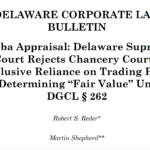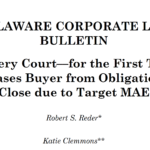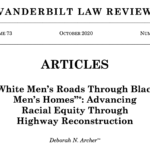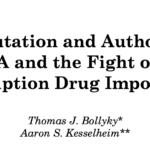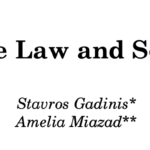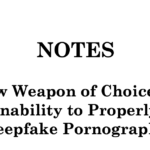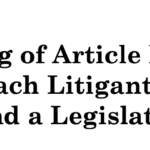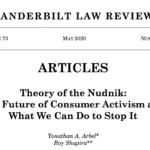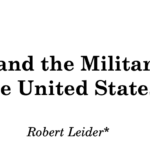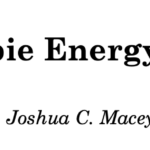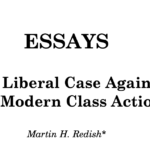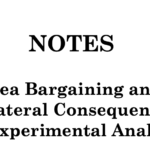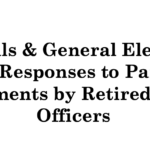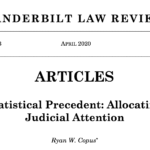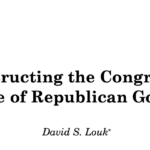Volumes Category
Aruba Appraisal: Delaware Supreme Court Rejects Chancery Court’s Exclusive Reliance on Trading Price in Determining “Fair Value” Under DGCL § 262
Oct. 21, 2020—Robert S. Reder & Martin Shepherd | 73 Vand. L. Rev. En Banc 239 (2020) | “Consistent with DFC and Dell, Aruba II reaffirmed the important, if not dispositive, role that deal price usually plays in determining ‘fair value’ for purposes of DGCL § 262. One cannot ignore the fact that the Chancery Court retains broad...
Chancery Court––for the First Time–– Releases Buyer from Obligation to Close due to Target MAE
Oct. 21, 2020—Robert S. Reder & Katie Clemmons | 73 Vand. L. Rev. En Banc 227 (2020) | “Under the standard adopted by the Delaware Court of Chancery (‘Chancery Court’) in In re IBP Inc. Shareholders Litig., 789 A.2d 14 (Del. Ch. 2001) (‘IBP’), a buyer seeking release from its obligations under an acquisition agreement due to...
“White Men’s Roads Through Black Men’s Homes”: Advancing Racial Equity Through Highway Reconstruction
Oct. 19, 2020—Deborah N. Archer | 73 Vand. L. Rev. 1259 (2020) | Racial and economic segregation in urban communities is often understood as a natural consequence of poor choices by individuals. In reality, racially and economically segregated cities are the result of many factors, including the nation’s interstate highway system. In states around the country, highway...
Reputation and Authority: The FDA and the Fight over U.S. Prescription Drug Importation
Oct. 19, 2020—Thomas J. Bollyky & Aaron S. Kesselheim | 73 Vand. L. Rev. 1331 (2020) | There is popular and bipartisan support for legalizing the importation of lower-cost medicines from Canada to help reduce the high prescription drug costs that Americans pay. Despite the wide interest in this policy, attempts over the last sixteen years to...
Corporate Law and Social Risk
Oct. 19, 2020—Stavros Gadinis & Amelia Miazad | 73 Vand. L. Rev. 1401 (2020) | Over a quarter of total assets under management are now invested in socially responsible companies. This turn to sustainability has gained solid ground over the last few years, earning the commitment of hundreds of CEOs and dominating the global business agenda. This...
“The New Weapon of Choice”: Law’s Current Inability to Properly Address Deepfake Pornography
Oct. 19, 2020—Anne Pechenik Gieseke | 73 Vand. L. Rev. 1479 (2020) | Deepfake technology uses artificial intelligence to realistically manipulate videos by splicing one person’s face onto another’s. While this technology has innocuous usages, some perpetrators have instead used it to create deepfake pornography. These creators use images ripped from social media sites to construct—or request...
The Standing of Article III Standing for Data Breach Litigants: Proposing a Judicial and a Legislative Solution
Oct. 19, 2020—Devin Urness | 73 Vand. L. Rev. 1517 (2020) | Data breaches are not going away. Yet victims still face uncertainty when deciding whether and where to file cases against companies or other institutions that may have mishandled their information. This is especially true if the victims have not yet experienced a financial harm, like...
Theory of the Nudnik: The Future of Consumer Activism and What We Can Do to Stop It
May. 26, 2020—Yonathan A. Arbel & Roy Shapira | 73 Vand. L. Rev. 929 (2020) | How do consumers hold sellers accountable and enforce market norms? This Article contributes to our understanding of consumer markets in three ways. First, the Article identifies the role of a small subset of consumers—the titular “nudniks”—as engines of market discipline. Nudniks...
Federalism and the Military Power of the United States
May. 26, 2020—Robert Leider | 73 Vand. L. Rev. 989 (2020) | This Article examines the original meaning of the constitutional provisions governing the raising and organization of military forces. It argues that the Framers carefully divided the military between the federal and state governments. This division provided structural checks against the misuse of military power and...
Zombie Energy Laws
May. 26, 2020—Joshua C. Macey | 73 Vand. L. Rev. 1077 (2020) | This Article traces the development of three legal rules—cost recovery for vertically integrated utilities, the requirement that regulators assess the financial viability of energy projects before issuing a certificate of public convenience and necessity, and the filed rate doctrine—that emerged out of the view...
The Liberal Case Against the Modern Class Action
May. 26, 2020—Martin H. Redish | 73 Vand. L. Rev. 1127 (2020) | Those who classify themselves as liberal generally favor widespread use of class actions as a means of policing corporate misbehavior and protecting the individual worker or consumer against capitalist excesses. In this Essay, however, I take the counterintuitive position that while class action practice...
Why Class Actions Are Something both Liberals and Conservatives Can Love
May. 26, 2020—Brian T. Fitzpatrick | 73 Vand. L. Rev. 1147 (2020) | In Professor Redish’s review of my new book, The Conservative Case for Class Actions, he argues that liberals should oppose the class action because the cy pres doctrine used to distribute settlement money is democratically illegitimate and that conservatives should oppose it because it...
Plea Bargaining and Collateral Consequences: An Experimental Analysis
May. 26, 2020—Carlie Malone | 73 Vand. L. Rev. 1161 (2020) | The overwhelming majority of convictions in the United States are obtained through guilty pleas. Many of these guilty pleas are a product of plea bargaining, where a defendant enters a guilty plea in exchange for some form of official concessions. Despite its prominence, plea bargaining...
Generals & General Elections: Legal Responses to Partisan Endorsements by Retired Military Officers
May. 26, 2020—Hannah Martins Miller | 73 Vand. L. Rev. 1209 (2020) | Retired generals and admirals of the U.S. military appear to be endorsing partisan political candidates in greater numbers, with more visibility. This Note argues that the practice represents a clear danger to civilian control over the military and weakens military effectiveness. It explains that while...
Statistical Precedent: Allocating Judicial Attention
Apr. 20, 2020—Ryan W. Copus | 73 Vand. L. Rev. 605 | Suffering from a well-covered “crisis of volume,” the U.S. Courts of Appeals have patched together an ad hoc system of triage in an effort to provide cases with sufficient attention. For example, only some cases are assigned to central staff, analyzed by law clerks, orally...
Reconstructing the Congressional Guarantee of Republican Government
Apr. 20, 2020—David S. Louk | 73 Vand. L. Rev. 673 | The Republican Guarantee Clause of Article IV, Section 4 promises that “[t]he United States shall guarantee to every State in this Union a Republican Form of Government.” Although this clause might seem to confer significant power to oversee the political structures of the states, ambiguity...
